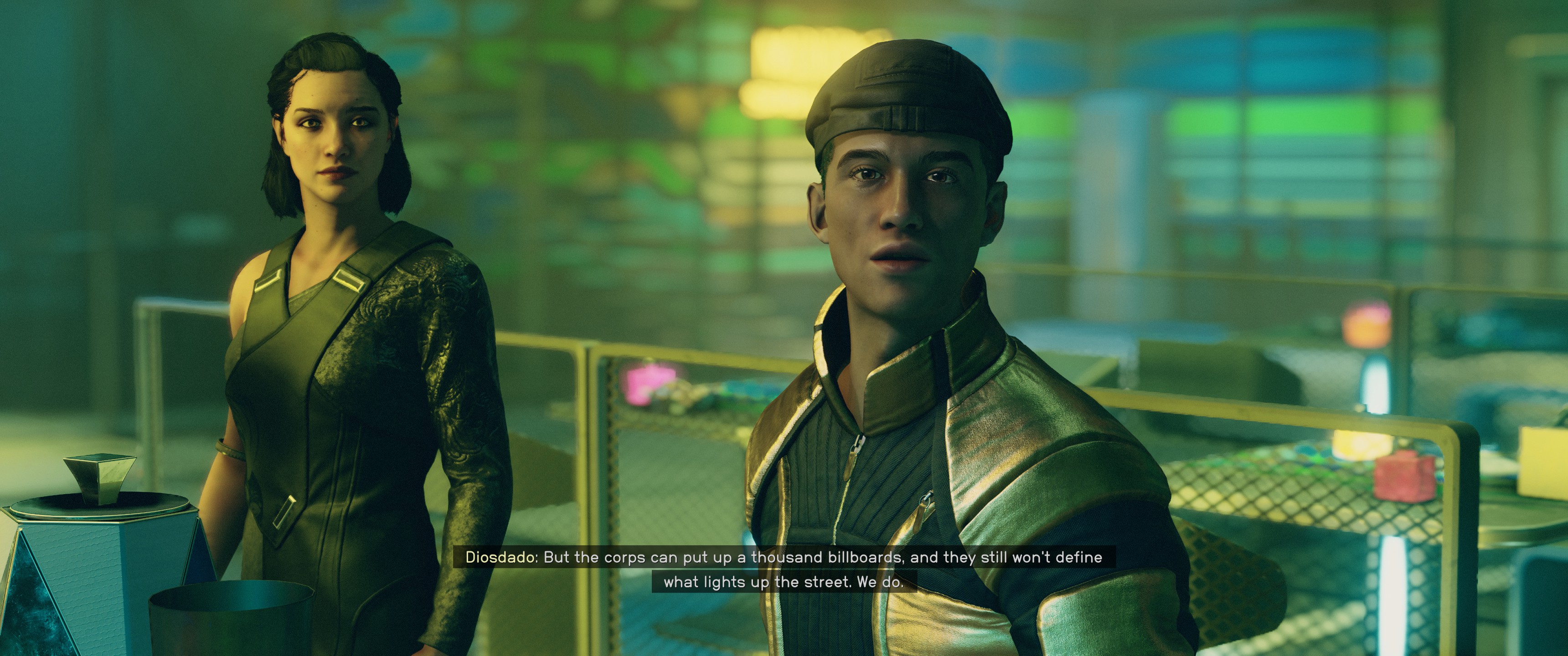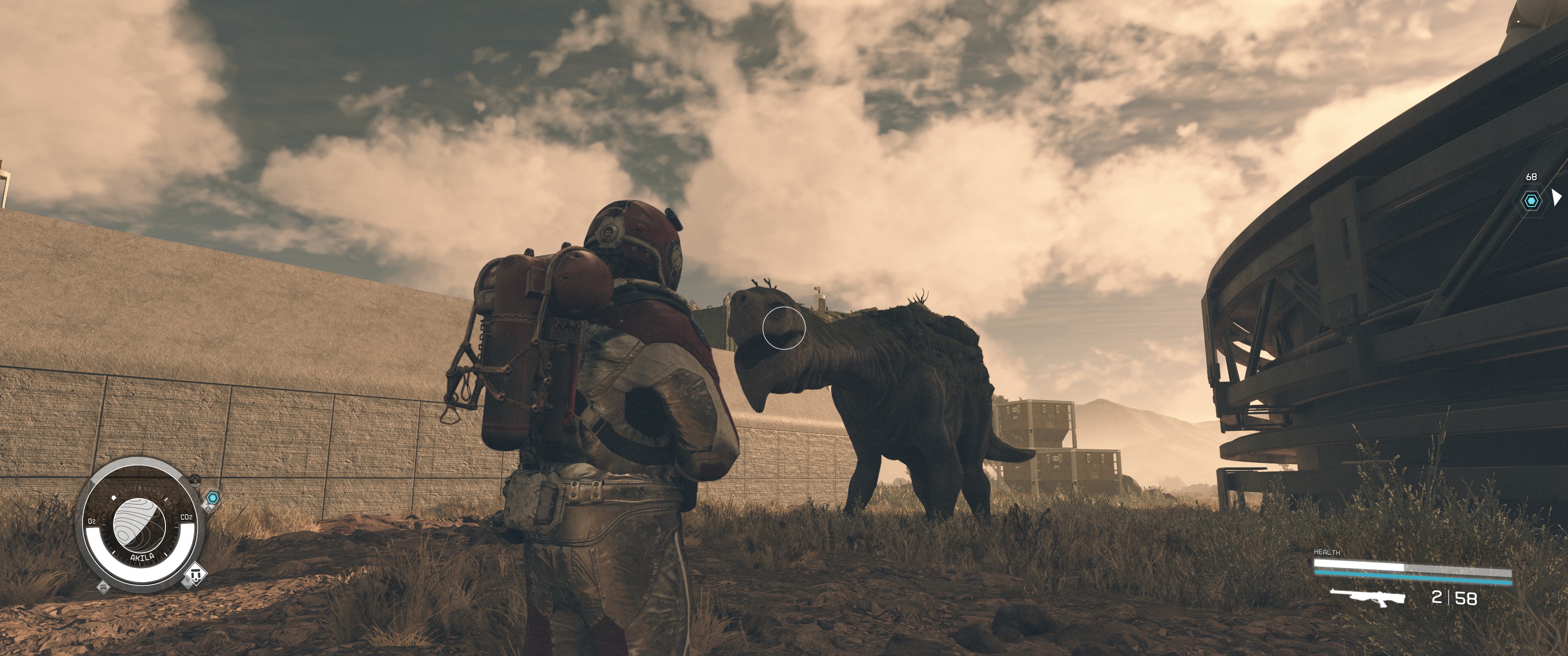Starfield fans are “gaming’s smartest fans” — or so Bethesda’s Todd Howard said in the spacefaring RPG’s bustling subreddit. It’s a bit of warm flattery fused with careful marketing hype, all wrapped in a feel-good message. Still, I appreciated it nonetheless as one of the first few eager Starfield players bursting through the doors of the game’s iconic Frontier starship in late August. But like many others, I only needed to dig slightly past the veneer of new-Bethesda-game excitement to realize Starfield’s release was underwhelmingly normal in a year of unexpected top-tier releases like Cocoon, Humanity, and yes, Baldur’s Gate 3.
Don’t get me wrong. Starfield ends 2023 as a massive commercial success, topping the Steam charts in September and pushing Xbox back onto the map after a relatively disastrous year. It did exactly what Microsoft needed it to do, and yet, between the mind-numbing repetitiveness of its rather empty universe and Bethesda’s recent trend of clapping back against negative Steam reviews, I’m starting to feel a little less “smart” the older it gets.
Building expectations
Remember when Bethesda was busy calling Starfield “one of the most important RPGs ever made” back at Summer Games Fest in June, and that a not insignificant portion of its fan base simply ate up the hype at face value? Ever the optimist, I was also reasonably stoked about Starfield at that point, so it was a personal shock when the middling reviews came out later across the board, including our own three-and-a-half star score. The response thoroughly shook up the expectations fans had built up over the summer.
After watching June’s in-depth Starfield Direct, I expected it to be a blowout release with the magnitude to face off against the likes of The Legend of Zelda: Tears of the Kingdom, which was, at the time, still deep in its post-launch zeitgeist as it celebrated one of the most successful releases in video game history. Bethesda games have historically captured the hearts and minds of players for years and decades; they’re typically massive, genre-defying universes that gradually become living platforms for a never-ending stream of (often, high-quality) user-created content.

This brand-new IP, built with longevity in mind, was positioned to bring a whole new Bethesda universe into existence. All while building upon, hypothetically, everything the developer had learned over 25 years. Be still my beating heart!
Fast-forward to the end of 2023, and I’ve thoroughly cooled on Starfield. It’s not so much that Starfield is a bad game, but it just wasn’t everything fans expected it to be, myself included. Not only did it have a slow official rollout of important features like DLSS, Frame Generation, and HDR — the former of which took mere hours to become available to PC players via unofficial mods — but it just wasn’t the bold new galaxy many gamers hoped it would be.
Bethesda’s maiden voyage into space was unremarkable, due to a mostly empty galaxy with minimal unique stuff to find between lackluster spaceflight sequences filled with loading screens. Plus, the hundreds of “abandoned” structures found on its procedurally generated planetary surfaces looked exactly alike once you landed on any of its 1,000 carbon copy planets. Even then, the roleplaying quests and the unique New Game+ twists gave fans enough enjoyment for their time, especially if you opted to download it via Xbox Game Pass rather than buying it outright.
Long-term woes
After some initial excitement at launch, the response to Starfield quickly began to cool. That would lead Bethesda to respond to some Steam reviews to defend the game’s more maligned parts. I have to wonder if the developer famed for inventing the gorgeous, historically rich, and culturally diverse Elder Scrolls universe is justified in fighting back against negativity instead of simply improving upon its product. On one hand, it goes without saying that if you have to tell your players how to play your game “correctly,” you’ve failed to some degree at creating a product that people intuitively want to play (even if added context can help the end user make a better-informed decision on how to approach gameplay).

On the other hand, I don’t think Bethesda has actually failed at what it set out to do. I fundamentally believe it’s a solid game with strong bones. It made a shockwave of positive momentum for Xbox too, which was critical for the brand coming out of a quiet 2022. I also think it needs a lot of work to meet the expectations that come when you promise your players a dynamic and exciting universe. With this group of developers at the helm — largely the same devs behind the incredible worlds of The Elder Scrolls and Fallout — there’s no reason Starfield couldn’t improve upon its systems and universe over time, eventually meeting that mark.
I’m just hoping that the 250-person team Bethesda established to continue developing Starfield does more to expand its universe over time. Right now, it’s simply too empty. Even the cities and factions set up in the main quests, such as the United Colonies and the Freestar Collective, feel too sequestered to their own particular quadrants of the map to carry the weight of a galaxy-spanning space odyssey.
After months of reflection, I realize that part of my frustration stems from the fact Starfield fails to instill a sense of wonder. In The Elder Scrolls series, there’s a breadth of lore and landscapes that are always visible to you; you can read about or even sometimes meet the inhabitants of a distant land, but each game is generally contained in a specific part of Tamriel. The world exists as a place in my mind, and each location feels like a distinct part of that greater world.
Starfield, which allows players to circumnavigate many of its 1,000 planets, feels empty by comparison. Going out and digging into its vast expanse rarely comes up with anything exciting, and this instantly collapses the size of Starfield’s “world” as it exists in my mind. I currently have to go to very specific locations to get involved with quests, and that can make Starfield frustratingly small. This is a huge leap backward from past Bethesda games, and a massive shot in its own foot when it came to the expectations the developer instilled in excited fans during its 45-minute Starfield Direct.

At least there’s some good news around the bend. Shattered Space, the first expansion for Starfield, is set to release at some point in early 2024. As an added positive, it’s slated to come free for anyone who ordered the Premium Edition. Not much is known about the content of that expansion pack, but I’m still holding out hope that Shattered Space begins to fill out this new universe with way more unique stuff to find. Likewise, when the official Creation Kit releases (hopefully around the same time!), we could also start seeing a plethora of user-made content mods filter into the game’s universe, closing the galaxy-wide gaps Bethesda left open in Starfield’s initial launch.
But it could be too little, too late to convince many players to return, let alone view Starfield as the picture-perfect image of innovation that Bethesda seems to desperately want us to believe it is.
Editors’ Recommendations
Services Marketplace – Listings, Bookings & Reviews